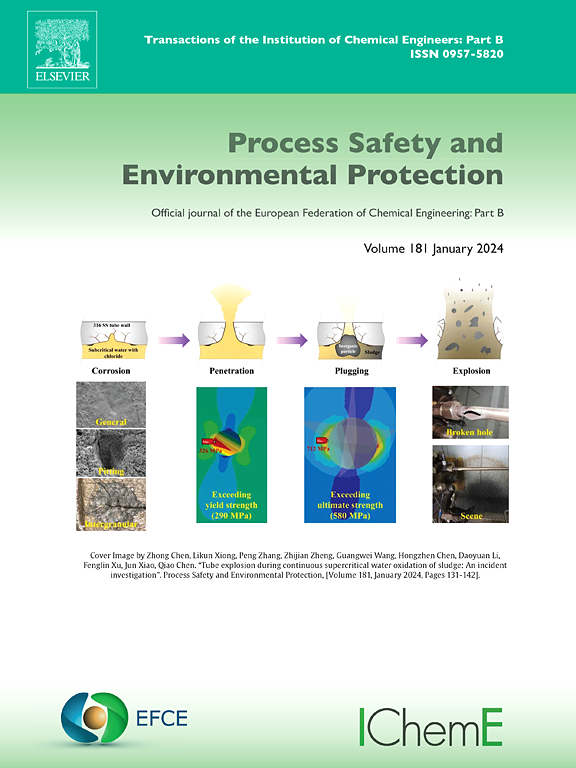Recent advances in ultrasound-assisted CO2 absorption/desorption processes: A review
IF 6.9
2区 环境科学与生态学
Q1 ENGINEERING, CHEMICAL
引用次数: 0
Abstract
In the last decades, many researchers from around the world have made great efforts to find a highly efficient, low energy consumption, and definitely, environmentally friendly technique for CO2 capture. Ultrasound-assisted absorption/ desorption processes is the subject of the present review. The use of ultrasound irradiations has emerged as one of the useful improving approaches in terms of heat and mass transfer enhancement as well as reduction in regeneration energy consumption by allowing the process to be performed at lower temperatures than the conventional method. In just over a decade, some various studies on sono-assisted absorption/desorption processes have been carried out, all of which have reported the brilliant results in terms of mass transfer enhancement and energy saving. Some unique phenomena induced by ultrasound including acoustic cavitation, acoustic fountain, atomization, and free radical production are responsible for its fantastic effects on CO2 absorption and desorption performance. This paper summarizes the research literature regarding the application of ultrasound interference in CO2 absorption/desorption systems published since the start of research in this field. Assessment of different contributing factors, scalability and research gaps have also been addressed.
求助全文
约1分钟内获得全文
求助全文
来源期刊

Process Safety and Environmental Protection
环境科学-工程:化工
CiteScore
11.40
自引率
15.40%
发文量
929
审稿时长
8.0 months
期刊介绍:
The Process Safety and Environmental Protection (PSEP) journal is a leading international publication that focuses on the publication of high-quality, original research papers in the field of engineering, specifically those related to the safety of industrial processes and environmental protection. The journal encourages submissions that present new developments in safety and environmental aspects, particularly those that show how research findings can be applied in process engineering design and practice.
PSEP is particularly interested in research that brings fresh perspectives to established engineering principles, identifies unsolved problems, or suggests directions for future research. The journal also values contributions that push the boundaries of traditional engineering and welcomes multidisciplinary papers.
PSEP's articles are abstracted and indexed by a range of databases and services, which helps to ensure that the journal's research is accessible and recognized in the academic and professional communities. These databases include ANTE, Chemical Abstracts, Chemical Hazards in Industry, Current Contents, Elsevier Engineering Information database, Pascal Francis, Web of Science, Scopus, Engineering Information Database EnCompass LIT (Elsevier), and INSPEC. This wide coverage facilitates the dissemination of the journal's content to a global audience interested in process safety and environmental engineering.
 求助内容:
求助内容: 应助结果提醒方式:
应助结果提醒方式:


